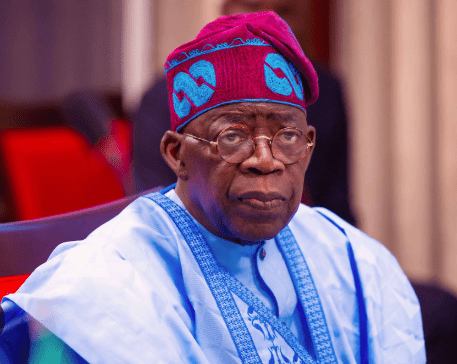The Coalition for the Protection of Democracy has criticized the frequent taxes and fees imposed by the Federal Government on Nigerians.
They said that citizens are suffering because of the taxes imposed by the FG.
During the group's convention and ICONS Democracy Awards ceremony in Abuja, the Chairman of COPDEM, Prince Rwang Pam, spoke out against the hardships faced by the middle class and poor Nigerians.
Rwang expressed concern about the difficulties faced by the middle class and poor Nigerians and appealed to the president to consider the interests of the masses in his policies.
He pointed out that introducing new taxes and levies when many Nigerians are struggling to afford food is not in the country's best interest.
He mentioned that many poor Nigerians have not been able to buy food and are being taxed, questioning the timing and necessity of these taxes.
He questioned the imposition of taxes on transactions by individuals who have not made a profit and urged the government to tax millionaires and billionaires instead of burdening ordinary citizens.
He also urged the administration to implement policies that benefit Nigerians and not just produce paperwork without taking action.
He expressed that people want to see practical improvements in their daily lives, not just empty promises.
He stressed the need for the current administration to fulfill its promises and bring positive changes to the lives of Nigerian citizens.
He mentioned that the present federal administration should prioritize bringing happiness to the Nigerian citizens, as promised by the president.
According to Rwang, if it takes the government two more years to address the current hardships faced by Nigerians, it would be unsatisfactory.
The Central Bank of Nigeria instructed financial institutions to apply the cybersecurity levy on electronic transactions on Monday, May 6.
The levy is stated in the Cybercrime (Prohibition, Prevention, etc.) Amendment Act 2024, according to the apex bank.
President Bola Tinubu's announcement of the removal of the fuel subsidy led to the increase in transportation and commodity prices.
This worsened the hardship in the country.
The Nigerian Electricity Regulatory Commission approved a 300 percent increase in electricity tariff for urban consumers in the country, from N68 to N225 per kilowatt-hour.
Similarly, the inflation in the country and the rate and pace at which the naira has decreased in value against the dollar have led to great difficulties for Nigerians.



